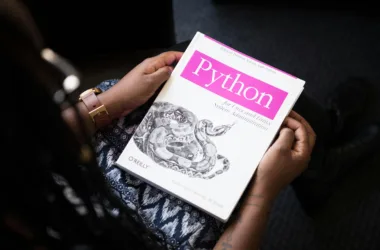What if greatness at work doesn’t come from supporting staff, but by letting them go? Netflix has a bold strategy called Performance Improvement Plans (PIP) that shakes things up. This plan questions old ways of handling employee performance and teamwork.
Netflix’s special work culture prefers top talent over a family feel. It changes how work gets done and who stays. The focus on only keeping standout performers, linked to how well they do, makes one wonder. Does this approach spark innovation, or does it lead to stress?
Understanding Netflix’s Unique Work Culture
Netflix is known for its distinct work culture, focusing on high performance and managing talent well. It has around 13,000 employees, aiming to keep only the best, similar to a top sports team. This means there’s no room for those who don’t excel.
The company believes in creating a culture rooted in values rather than just rules. Reed Hastings, the co-founder, stresses on hiring people who significantly outshine others. In creative roles, some can be 25 to 100 times better than average, making the search for standout talents vital.
Netflix promotes openness in sharing feedback among employees. This keeps the focus on achieving long-term goals rather than short-term achievements. This approach started in 2001, when reducing staff actually increased productivity and passion. With 30% fewer employees, the remaining workforce was able to do more work.
Instead of typical performance improvement plans, Netflix goes for a unique route by offering generous exit packages. This strategy helps maintain a workspace where only the highest performers stay. Unlike other companies, Netflix doesn’t have bonus schemes. It offers top-market salaries to keep its “Dream Team” content and motivated.
Netflix’s leadership values giving context over exerting control. Managers provide guidance rather than micromanage. The culture here embraces different views, which helps in working together effectively. Employees are encouraged to learn from setbacks and share their insights, highlighting the collective success over personal gains.
The Concept of Performance Improvement Plans
Since the ’80s and ’90s, Performance Improvement Plans (PIPs) have been key in reviewing employee work. They help businesses identify and fix work-related issues. Usually, PIPs last for about three months, with employees under close watch.
A revealing statistic notes that barely one out of a hundred on a PIP gets fired. This shows the low success rate of these plans.
Netflix takes a clear stance on using PIPs, ensuring open conversations about work issues. They work to keep the dialogue respectful. This honesty helps avoid hurting team spirit and affects how people work together.
The way Netflix handles PIPs influences its company culture deeply. It shapes how staff see their jobs and what they are responsible for.
Netflix’s approach to managing talent has caught lots of attention, with over 5 million looking at its guide. This guide, made of 127 easy slides, suggests valuing and retaining skilled workers. Netflix swaps regular reviews for meaningful talks and offers good exit packages. They strive to match employee talents with their needs, while treating everyone fairly.
PIP Culture at Netflix
The PIP culture at Netflix is known for its unique way of evaluating and keeping employees. It uses the Keeper Test, which makes managers think about if they’d fight to keep an employee who might leave. If they wouldn’t, it could mean the employee isn’t a good fit or isn’t performing well. This method clearly shows that only the best will stay at Netflix.
The Keeper Test Explained
The Keeper Test is crucial in Netflix’s culture. It makes managers think about how their choices affect the team and the company. It’s simpler than traditional improvement plans and focuses on keeping only top performers. Netflix aims to hire the best by offering top pay to stay ahead.
Implications for Employee Retention
This strategy impacts how Netflix keeps its employees. The company offers a lot of freedom but expects great work in return. Patty McCord, Netflix’s first HR head, said the hiring should match the company’s culture. This shows how the right culture can make employees happy and stay longer.
The Impact of Talent Density on Performance
At Netflix, talent density is key in shaping the organization’s drive for excellent team performance. Having a concentrated group of high-caliber individuals gives a big edge. With just 10 sharp employees, you could beat a team thrice its size. This shows just how pivotal talent density is for productivity.
Building “Rock Star” Teams
To form “rock star” teams, it’s essential to focus on hiring the best. Aim for individuals who approach problems from the ground up. When team members take full ownership, decision-making and teamwork soar. Being around other talented folks ups everyone’s game, creating a cycle of higher productivity.
Investing in a team with high talent density opens the door to many benefits:
- Lower communication overhead due to fewer relationships and channels.
- Trust grows among team members, so there’s less micromanaging.
- Employees align more closely with business goals, boosting referrals.
- Better job satisfaction and forecasting abilities.
- Competitive salaries keep top talent onboard.
Netflix credits its success to its dedication to talent density, clear transparency, and the ongoing growth of its people. This approach helps high performers excel and fosters a place where innovation thrives.
Freedom and Responsibility in the Workplace
Netflix has a special way of doing things that focuses on freedom and responsibility. This method boosts openness at work. It lets employees make big decisions that lead to new ideas. Instead of slow approvals, they get to act fast and be creative.
At Netflix, they really believe in giving power to their employees. They have regular meetings to talk openly and keep things honest and helpful. They hire the best people to make sure the team is strong. This makes a place where everyone can share their ideas freely, but they also have to own up to their actions.
- Freedom in decision-making leads to better outcomes and increased motivation among staff.
- Encouraging candid feedback promotes a culture of continuous performance evaluation.
- Proactive talent management focuses on skill development within the workforce.
Netflix puts people first, instead of sticking to strict rules. This helps staff solve problems with less need for checking in. This openness and team work aim to get the best results. Having the freedom to make decisions makes employees happier and more involved. This proves that when you give people freedom, the whole company does better.
Feedback and Candor: Essential Elements
Netflix values creating a space where employees freely share feedback and are open. This builds trust throughout the company, from teammates to higher-ups. Open conversations are key. They help everyone aim for better results together.
Cultivating a Feedback-rich Environment
Netflix makes sure to include feedback in regular team meetings, making them more effective. Employees can talk about worries or ideas, creating a clear, honest setting. Not having set vacation policies lets employees choose their own time off, showing respect and trust.
No need for approving travel or expense reports makes decision-making faster. This gives employees more control and responsibility in their roles.
Netflix focuses on keeping talented creators by offering great pay, not just bonuses. This shows how much Netflix values creativity and hard work. Employees discuss their needs openly, promoting cooperation over being in charge.
Netflix uses the Keeper Test and Circle of Feedback to keep feedback helpful and ongoing. These steps make sure that the team stays strong and effective. They prevent the issues that come with not handling underperformance well.
Encouraging a team of highly talented people boosts creativity and new ideas. Everyone gets to share their thoughts and feedback, reducing the need for a strict hierarchy. Openly talking about company finances lets everyone make smarter choices. This makes feedback an even stronger tool for getting better.
How PIP Culture Influences Employee Productivity
Netflix’s PIP culture greatly affects employee productivity. It uses strict performance metrics and accountability. There is no room for mediocre work, creating a competitive environment. This environment pushes for high output and innovation. It encourages employees to exceed their limits and meet company goals.
However, this culture can also cause stress. The constant need to outperform can harm well-being. It’s vital to balance high performance with mental health. Too much stress can result in burnout, lowering productivity over time.
Organizations with PIP culture should think about its effects on morale. Aiming for excellence boosts productivity at first. But, too much stress from PIP can decrease job happiness and productivity.
In conclusion, PIP culture boosts productivity by increasing accountability. Yet, it’s important to make sure employees feel supported and valued. Balancing performance demands with well-being can lead to long-term success for the team and the organization.
Compensation Strategies: No Pay-for-Performance Bonuses
Netflix chooses unique compensation strategies, avoiding the common pay-for-performance bonuses. Instead, their salaries depend on market rates and each person’s contribution, not just yearly performance. This method aims to keep the team motivated and hold onto skilled employees who agree with Netflix’s goals.
Creative workers at Netflix get top-of-the-market compensation. This shows the company’s effort to attract and keep the best. Employees can talk to other companies and share any better salary offers with Netflix, possibly leading to raises. This approach encourages openness and builds a trust-filled culture.
Unlike many US companies, where big bonuses are common for top staff, Netflix offers simple salaries. Without linking pay to performance metrics, Netflix workers can focus more on their jobs. They don’t have to worry about pay being affected by their performance reviews. This fits with Netflix’s values of freedom, responsibility, and useful feedback.
Feedback is crucial at Netflix for improving performance. Research shows that 57% of workers prefer to get corrective feedback. And 72% believe they’d perform better with more constructive criticism. Netflix’s approach to compensation shows it believes in creating an environment where everyone can grow.
Managing Mistakes: Learning from Failure
Netflix embraces mistakes to foster continuous improvement. It sees errors as growth chances, not failures. This mindset pushes employees to learn from mistakes, turning obstacles into valuable lessons for better future performance.
Encouraging Transparency about Errors
Transparency is key for managing failures effectively. At Netflix, sharing mistakes openly is encouraged. This approach helps everyone learn from each other, sparking innovation and resilience.
By talking about failures, teams understand challenges better and find ways to beat them together. Openness builds trust and boosts teamwork in fixing problems.
- Establishing a safe environment for discussions about errors.
- Recognizing the value of peer feedback in mitigating future mistakes.
- Celebrating improvements gained through learning from failure.
- Implementing strategies to document lessons learned from past errors.
Being open about mistakes helps create a positive work culture. It empowers employees to take risks, knowing they’ll learn from their journey.
Challenges Related to PIP Culture
PIP culture creates a tough work setting, often raising workplace stress. Many workers feel unsure about their jobs, leading to anxiety. For instance, in a recent performance check, 75% met expectations. Yet, the stress among employees was still high. This situation can cause many to leave their jobs. For example, a team dwindled from more than 20 to less than 10 members.
Employees in a PIP often struggle for clear support. For instance, unclear communication about PIP completion rates worries many. Also, review expectations sometimes don’t match an employee’s skills. This mismatch increases stress at work.
The operational effects can be massive, like when 100% of a team’s products were stopped. Layoffs during the COVID pandemic showed how hard stability is in tough times. Employees worry about job performance and potential career breaks, adding to their stress.
A hiring freeze makes things worse by limiting new hires. This affects team support and increases employee frustration. For instance, 57% feel upset with coworkers not doing their share. These issues can harm the work environment, lowering engagement and work output. It’s important to create a workplace that meets high expectations while keeping employees happy.
The Evolution of Netflix’s Management Strategies
Netflix’s story tells of incredible changes in management practices. Since starting in 1997, it moved from old-school management to trusting and free-flowing styles. Reed Hastings, the CEO, focused on setting core values with Patty McCord’s help. This big step changed how Netflix strategies focus on top performance and managing talent.
Finding and keeping great staff became key for Netflix. Klaus-Peter Bastgen, a top HR leader, said getting the best people is crucial for lasting success. By focusing on hiring, Netflix saves money and performs better.
Netflix tries to empower employees with policies like unlimited vacations. The aim is to create a trusting atmosphere. But, it’s important to watch for possible burnout. Being open within the company also helps build trust and involvement at all stages.
Tackling poor performance is important to Netflix. They focus on helping employees improve, avoiding a scary work environment. This approach has helped Netflix become very influential. It now makes up 15% of internet traffic and leads in streaming services.
Conclusion
Netflix’s PIP culture offers a new view on managing performance that combines high goals with respect for employees. The idea of Performance Improvement Plans (PIPs) might seem like they lead to getting fired. But understanding their place in Netflix’s forward-thinking culture shows us how they can help people grow and take responsibility.
Even though PIPs were once seen as old-fashioned, lots of companies still use them today. People often think employees go on PIPs because of legal issues, but these plans can have clear outcomes. To handle the risks, companies should talk openly and offer good severance to make their reputation and how they treat employees better, which creates a culture of responsibility.
An environment that likes open feedback improves how individuals and teams perform. If companies welcome honest feedback and support their best employees, they don’t need as many rules and everyone feels better. Netflix’s way of handling PIPs shows that you can achieve success and keep employees happy with a thoughtful and kind approach to managing performance.






